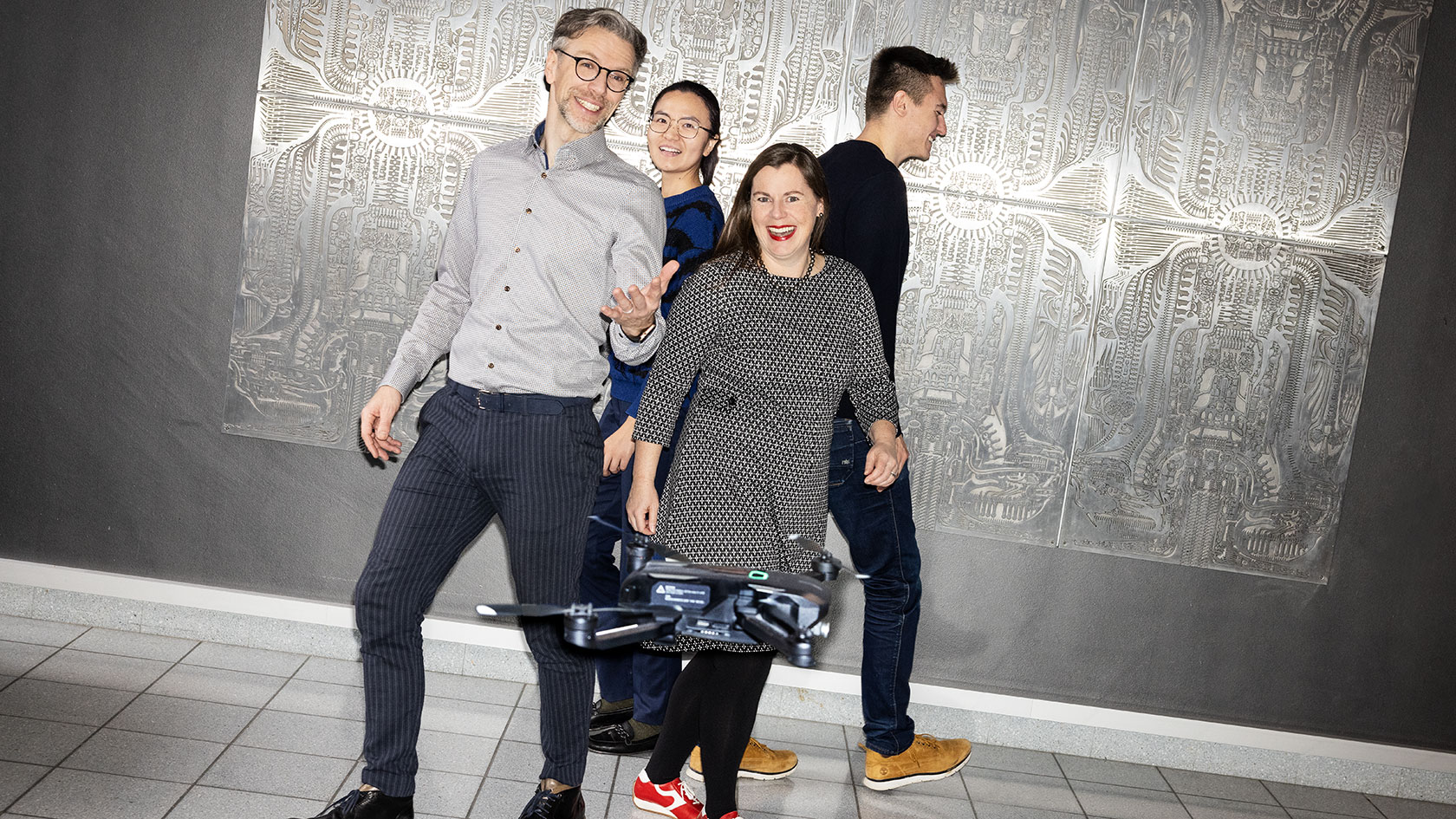Navigation auf uzh.ch
Navigation auf uzh.ch

Titus Neupert is a man on a quest. His holy grail? New materials with previously unknown properties. His trusty steed? Machine learning (ML). Machine learning algorithms are trained with large quantities of data, enabling them to identify connections and patterns that researchers would be unable to identify. Neupert uses these algorithms to find out whether the novel materials have special features that could be useful in the future of electronics, for example.
“Machine learning has become a lingua franca and is now used in all data-intensive sciences, as was previously the case with traditional statistics,” says the physics professor. UZH is no exception: at the Vetsuisse Faculty, Sonja Hartnack is using algorithms to research antibiotic resistance, at the Institute of Law Tilmann Altwicker is testing whether ML can help with judicial decisions, and at the Faculty of Theology Thomas Schlag is investigating the effects of digitalization on religion. All three researchers are taking part in Neupert’s ambitious pilot project, launched in the 2022 Fall Semester in collaboration with the Digital Society Initiative (DSI): an introductory ML course for students from all fields who want to acquire this lingua franca for their own future goals.
The “Machine Learning – an Interdisciplinary Introduction” course is conceived as a series of lectures in which instructors from all faculties present their perspectives on machine learning. In the first three lectures, informatics professor Manuel Günther provides students with an introduction to the basic tools. “Nowadays you can find pre-programmed packages for many applications. But students need to understand what algorithms are suitable for analyzing which data in order to get valid results,” explains Neupert.
After the intensive introduction lectures, Hartmann, Neupert or other researchers show the students how they use machine learning in their daily work. By seeing the differing uses in various disciplines, students get an idea of the range of different applications for algorithms in modern life. But students are also encouraged not to unthinkingly rely on the machines – they learn to evaluate when machine learning makes sense and when it’s better to do a statistical analysis.
“I was thrilled that we were able to get the students thinking in this cross-disciplinary way and that they subsequently asked interesting questions on a meta level,” Neupert says. Philosophical and ethical questions about the use of ML and its potential risks are also addressed in the course. For example, if the data used for training an algorithm to make legal judgments is biased, the algorithm’s rulings may disadvantage some minorities. “Machine learning is a double-edged sword. We want to raise students’ awareness of this and ensure they are prepared for the conflicts it may throw up,” explains the physicist.
Practical sessions in addition to the lectures serve to reinforce the students’ newly acquired skills. “However, the heterogeneity of the participants’ abilities – especially in the area of programming skills – was a huge challenge,” says Neupert. The dedicated work of two teaching assistants, Michael Denner and Kilian Sprenkamp, made it possible to cater for all students, regardless of their prior knowledge. In most classes, students could choose from two exercises – a programming task or a writing assignment reflecting on the topic. This allowed them to determine for themselves which skills they wished to develop.
“We tried to provide as much assistance as possible through individual feedback and live coding sessions together,” explains Denner, a doctoral candidate in physics. Students were given the chance to revise their solution after receiving feedback and to submit the new version for grading. Individually checking each student’s code was time-consuming but brought great benefit to the learners, says Denner.
The interactive exercise format also meant students discovered surprising connections between applications of ML: for example, that the same type of algorithm is used to complete sentences, to predict stable molecules in chemistry and to predict Bitcoin prices on the financial market.
“This interdisciplinary course required a lot of resources and additional work from everyone involved,” Neupert says. But the teaching staff benefited along with the students: “It was really interesting to share different approaches and problems across disciplines. It broadened our horizons as well as those of the students,” says Denner.
The teaching team sought student satisfaction feedback several times during the semester which they used to adapt the teaching format as they went along. For example, the practical sessions were made longer so that there was enough time to discuss the exercises and answer any questions. According to Denner, the students noticed and appreciated the instructors’ efforts to improve the course: “We asked some students if they would like to help us revise the course, and they were really keen to get involved.”
To better accommodate students’ varied prior experience of programming in the future, an additional module on programming with Python will be offered as a supplement ahead of the module in the 2024 Spring Semester. “This will leave more time in the machine learning lecture to dive deeper into the different disciplines,” explains Ursula Brack, who helped with teaching development for the pilot project. The first iteration of the course gave her valuable insights for developing the curriculum of the new DSI Minor Digital Skills, which the DSI hopes to offer in the future. The interdisciplinary minor will be the first program of study taught through the School for Transdisciplinary Studies. Meanwhile Master’s students from across UZH can continue to take Neupert’s course to prepare them for the advances of digitalization in society and research.